Opinion | Labelling Georgia’s far right ‘pro-Russian’ is reductionist and counterproductive

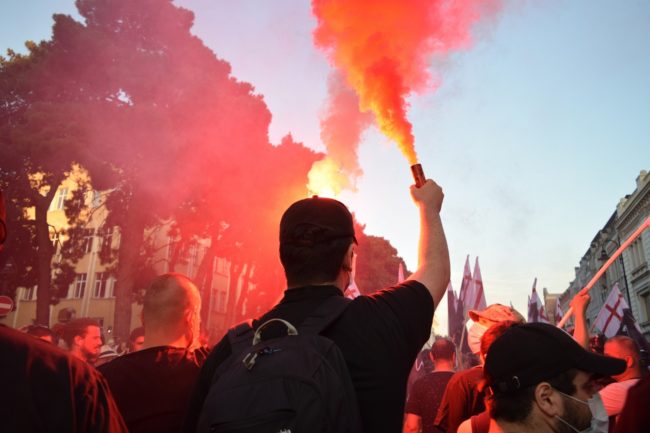
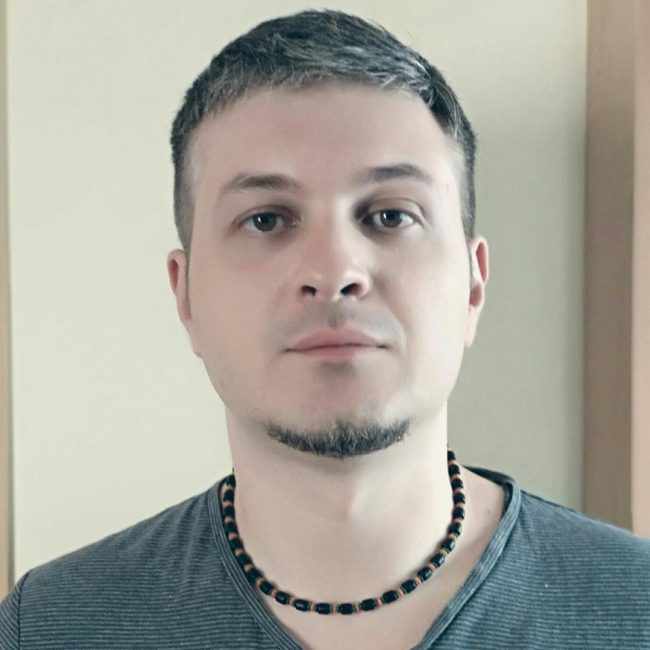
Georgia’s liberal rights groups, neoliberal political parties, and their supporters in the media have consistently tried to discredit neo-nationalists by simply labelling them ‘pro-Russian’ — a misguided claim that only mirrors the opposite claim that rights groups follow an anti-Georgian ‘Soros agenda’. To address growing far-right authoritarianism in Georgia, the underlying social and economic roots of the problem need to be addressed, as well as the legacy of authoritarianism of the previous ruling class.
July 2017 was a turning point for Georgian neo-nationalism. The March of Georgians and other smaller groups joined forces and took to Tbilisi’s central Aghmashenebeli Avenue, famous for its multicultural make-up. The anti-immigration rally of several thousand people was the biggest Georgia has ever seen.
Members of the European Georgia Party, a spin-off of former President Mikheil Saakashvili’s United National Movement Party (UNM) were quick to brand the rally ‘pro-Russian’ and organised a counter-demonstration under the slogan ‘No to Russian Fascism’ in an attempt to ‘reclaim’ Aghmashenebeli Avenue. The party of skilled technocrats and civic nationalists were looking for the perfect enemy — and they found one.
[Read OC Media’s analysis: Who was in and who was out in Tbilisi’s far-right March of Georgians]
The perfect enemy
The March of Georgians were demanding the government restrict the issuance of residence permits and ban civil society organisations financed by foreign donors, especially George Soros’s Open Society Foundations. They also condemned the ‘popularisation of drugs’ and ‘LGBT propaganda’. These same slogans resurfaced in May during counter-demonstrations against Georgia’s ‘Rave Revolution’ — rallies protesting police raids on several Tbilisi nightclubs.
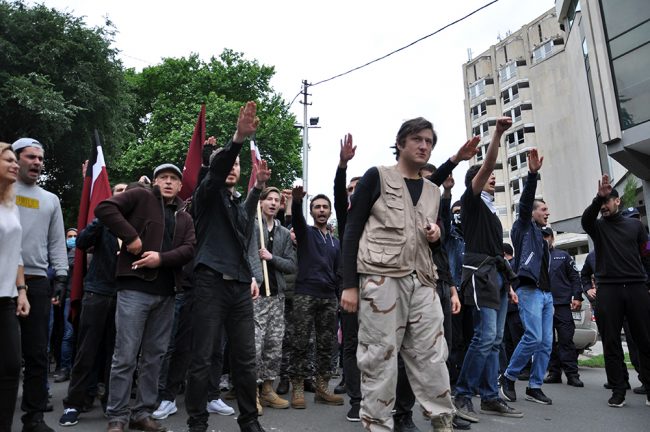
While conservative groups attempt to replace liberal parties as the main political alternative to Georgian Dream, the response of the liberal political class to this challenge has been to fixate on two basic positions: that any conservative political player — be it the March of Georgians, the Georgian Idea Party, individual conservative activists, or neo-fascist fringe groups — are secretly operated by Georgian Dream–controlled law enforcement apparatus, and that all these groups, due to their anti-liberalism, are fundamentally pro-Russian.
Economic injustice and a denial of the past
Liberal rights groups like Transparency International — Georgia, the Georgian Democracy Initiative, the Media Development Foundation, the Tolerance and Diversity Institute, neoliberal parties the European Georgia Party and the UNM, and their allies in the media, such as TV channel Rustavi 2 and online media outlet Tabula, need to portray Georgian ultra-conservatives as more pro-Russian than they actually are, as they cannot afford to have non-Russophile political contenders nor have their own image of saving Georgians from creeping Russian influences jeopardised. But what defines most of these liberal groups in Georgia is not their adherence to human rights and political freedoms, which pretty much went out of the window in Saakashvili’s late ‘liberal’ rule, but their inability to revisit this ‘liberal’ government’s crimes.
After the 2003 Rose Revolution, religiously pro-Western and economically right-wing lawyers from the newly elected UNM, with some of the worst ideas the West generated in the 1970s, led the nation on a journey of experiments with radical privatisation and mass layoffs in the public sector. Speaking in a language of tolerance to ethnic minorities and cracking down on violence towards religious minorities, the neoliberals sent a signal that they had the minorities’ backs. The top-down liberalism left masses disenfranchised from politics and turned religious minorities, women fighting for equality, and the queer community into narrow, co-optable interest groups, operating within an institutionalised, depoliticised framework for an ersatz of real emancipation. Meanwhile, this same framework brought non-inclusive economic growth, one of the highest rates of income inequality in the region, and a myriad of human rights abuses.
Most in Georgia’s liberal NGOs and expert circles either overwhelmingly favour the disappearance of the state from economic life or at least fail to identify economic inequality as one of this policy’s gravest outcomes. Moreover, as many in the ultra-conservative groups are former political prisoners, they are yet to hear these liberal groups recognise the injustices that were done to them. Liberals groups’ strict adherence to and advocacy for personal and political freedoms, equality, and tolerance comes packaged with systematic negligence towards — if not outright advocacy for — economic injustices, and their denial of human right abuses during Saakashvili’s semi-authoritarian rule.
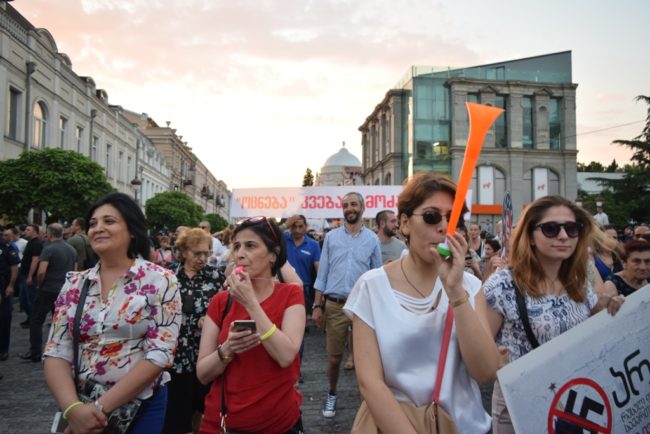
As the UNM’s offshoots counter-rallied on 19 July 2017 on Aghmashenebeli Avenue against fascism and rape threats towards female activists, they revealed that minority rights had become fully embedded into their liberal agenda, but this is an agenda where income redistribution and social protections are not only redundant but seen as hostile to freedom. Women and minority groups are expected to march on their ‘international days’ and to keep challenging conservative society, but not to question either the economic policies that feed social anxieties or renounce the UNM’s still recent anti-democratic past. By this logic, Georgian queer rights activists and feminists should not reject Saakashvili’s policies still integral to the country’s neo-liberal parties nor advocate for access to health services, childcare services, adequate housing, or labour safety conditions.
While it sits within liberal political groups’ agenda to challenge and be challenged by radical illiberal groups, they offer conflict without solutions. The liberal political and civil society spectrum that has taken up the mantle of ‘resisting fascism’ and ‘Russian propaganda’ are either too close to, or unwilling to address, the pre-Georgian Dream injustices, or are too weak to make their case. Additionally, none of these groups seems eager to revisit the social policies that typically contribute to social conflicts mobilised around identity claims.
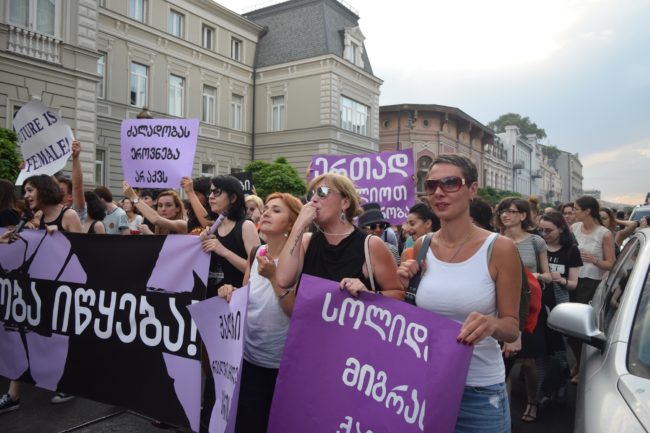
Bridges to the West
The understanding of right-wing extremism in most of Georgia’s liberal rights groups is still dominated by the clichés of the ‘liberal West’ vs ‘illiberal Russia’. But it is the West that these ultra-conservative groups look up to most, particularly their younger members, carefully following the latest debates on immigration, ‘white genocide’, and ‘gender ideology’.
The March of Georgians, several smaller groups, and individual activists joining them on streets love to rally in anger, triggered by on-air jokes about Jesus or demonstrations supporting transgender rights. They are labelled ‘pro-Russian’, and to be fair, they themselves occasionally equate their dislike of Western liberalism with anti-Western rhetoric. However, other conservative groups seek legal measures to advance their agenda on issues such as abortion, queer rights, or citizenship and immigration. Groups like the Demographic Society 21 and Society for the Protection of Children’s Rights petition, propagate, engage with young people and the media, and initiate legal amendments. They have also started to use the language of human rights as well as try to achieve their aims using legal means.
‘We don’t like the anti-discrimination law? How about we write an alternative one? You care about abortions? Why don’t we find out how other countries deal with the problem? There’s a problem of foreigners flooding into our country? Let’s show our people, who are in an informational vacuum, how people worry about these issues in America and European countries’, said conservative internet personality Zurab Makharadze in June.
The leading figure trying to bridge Georgia’s conservative activists with their Western counterparts is Emory University Graduate and head of Prometheus Capital Partners, businessman (with a Russian background) and philanthropist Levan Vasadze. An advocate of Georgia’s ‘selective westernisation’, he is also the founder of the conservative, Tbilisi-based Demographic Renaissance Foundation. In 2016, Vasadze hosted the 10th annual World Congress of Families in Tbilisi, with guests including the now–Moldovan President Igor Dodon, Polish PiS senator Antoni Szymański, and then–Hungarian Ambassador Sándor Szabó.
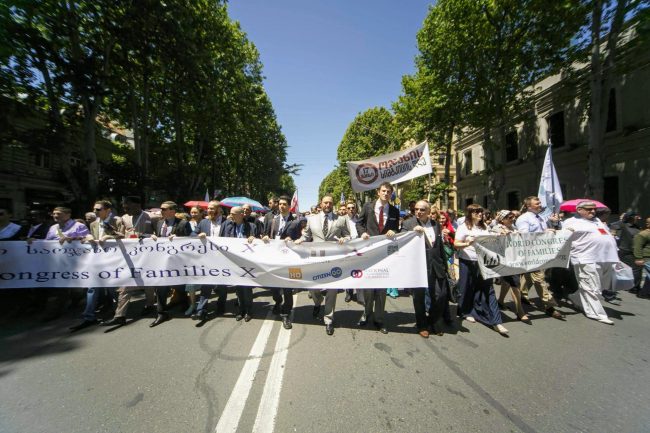
One of the main sources of inspiration, frequently cited by Georgian far right on the subject of ‘gender ideology’ is a translated piece that has been highly circulated and reproduced online, by Alessandro Fiore. Fiore was a speaker at the 2017 World Congress of Families and is a member of Italian conservative association Notizie ProVita.
Not ‘us vs them’
Questioning just how pro-Russian Georgian March’s illiberalism is and identifying other conservative groups’ strategies is not to entirely reject Russia’s influence on them. A number of experts have pointed to heavy Russian influence on Western conservative and far-right groups.
But the picture became more complicated in Georgia after one of the most overtly Russia-nostalgic groups, the Georgian Orthodox Church, a once uncontested authority on what Georgian identity meant, ceased to be the only source for Georgian nationalist narratives. The younger generation of traditionalists, who barely speak Russian, are fascinated with Western extreme conservative movements. These young Georgians use not only the same imagery, but also preach alarmist ideas about the dangers of ‘cultural Marxism’ and being ‘overrun by [usually Middle Eastern] foreigners’.
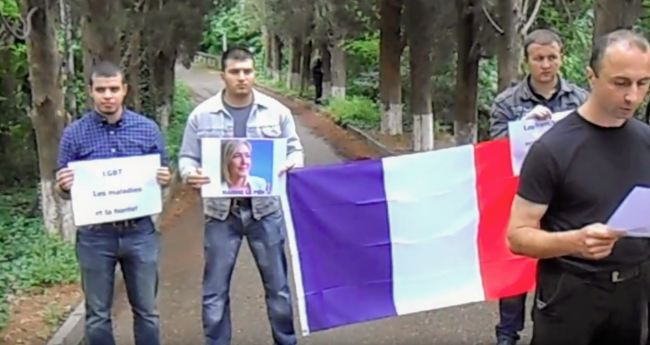
Hence, lumping all conservative and ultra-conservative groups under the ‘pro-Russia’ or ‘neo-Nazi’ banner is reductionist and misleading. What most conservative and ultra-conservative groups in Georgia have in common is their dislike for state-supported, top-down liberalism and its successes (e.g. the anti-discrimination law). Beyond that, their actual positions on issues, their alternatives, and their strategies all vary substantially. Even during the ‘perfect storm’ of the 2017 xenophobic march, some such groups refused to rally.
Tentative evidence of connections between these groups and the Georgian security services or clandestine Russian money being poured into Georgian neo-conservative forces still cannot explain away their energy and potential to resonate with Georgian society’s fears and frustrations with politics.
Instead of name calling, groups willing to offer alternatives to far-right authoritarianism need to identify the actual and potential social base of each organised ultra-conservative segment, if they aim to make any real change. They also need to recognise that fighting right-wing political radicalism and extremism will be difficult to tackle without a complete overhaul of the social and economic policies that help breed extreme social attitudes and political ideas. A relative improvement of social safeties, employment, and income equality will create a far better background to fight anti-equality movements.
Leaving economic and political injustices unaddressed and simply rejecting the identity-based concerns of those who see themselves as part of the ‘threatened cultural majority’ will continue to jeopardise the quest for freedoms and equality.









